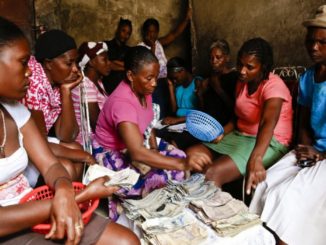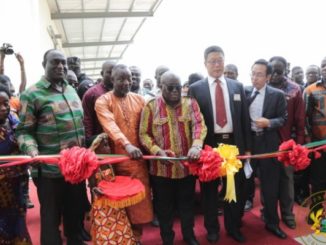 The President of the Association of Ghana Industries (AGI), Dr Yaw Adu Gyamfi, has bemoaned the dwindling fortunes of the manufacturing subsector in recent years, warning that the country risks losing its industrial base should the situation remain the same.
The President of the Association of Ghana Industries (AGI), Dr Yaw Adu Gyamfi, has bemoaned the dwindling fortunes of the manufacturing subsector in recent years, warning that the country risks losing its industrial base should the situation remain the same.
Rather than inspiring entrepreneurs to build new factories and sustain existing ones to employ people and grow the economy, Dr Gyamfi said Ghana had, in the recent past, lost a chunk of its “once vibrant” areas of manufacturing to various challenges.
Addressing captains of industry and government officials at AGI’s Ghana Industry Awards on December 8, the president pointed to the phasing out of businesses in the textiles, alumina, vehicle assembly, glass manufacturing and those in the processing of agricultural products such as meat, sugar, tomatoes and citrus as evidence of a country which had its manufacturing base deteriorating rather than progressing.
“Industry continues to shrink and we risk losing our industrial base,” he said at the event which was graced by President Nana Addo Dankwa Akufo-Addo.
“On the occasion of our 60th anniversary, therefore, we are taking stock of developments in the industry over the past 60 years and I am sorry to say the picture of manufacturing has not been encouraging.
“We are actually deindustrialising,” Dr Gyamfi, who is also the Chief Executive Officer of Danadams Pharmaceutical Industry Limited, said at the event.
AGI, an advocacy body with over 400 members, has since its inception in 1958, become the voice of manufacturers and related businesses in the country.
Dr Gyamfi said while Ghana’s manufacturing subsector accounted for 4.5 per cent of GDP, the average was 22 per cent in middle income countries.
“Indeed, Ghana’s manufacturing value addition share to GDP has fallen since 1985, an indication of deindustrialisation,” he said.
In July this year, an Economist and Senior Research Fellow with the Institute for Fiscal Studies (IFS), Dr Said Boakye, told the GRAPHIC BUSINESS that the current state of manufacturing explained why the country was unable to achieve sustained development, also called prosperity in economics.
–



